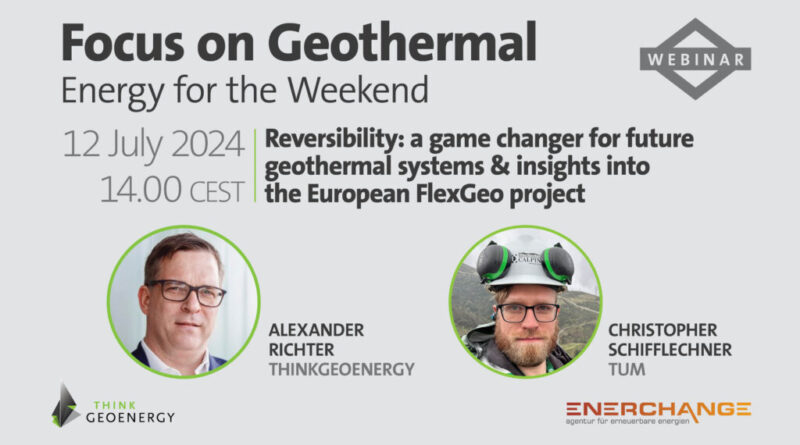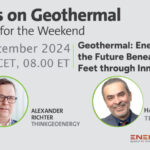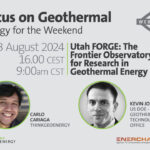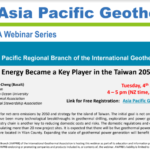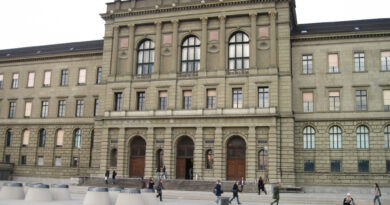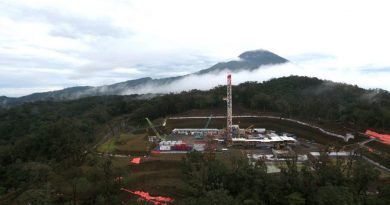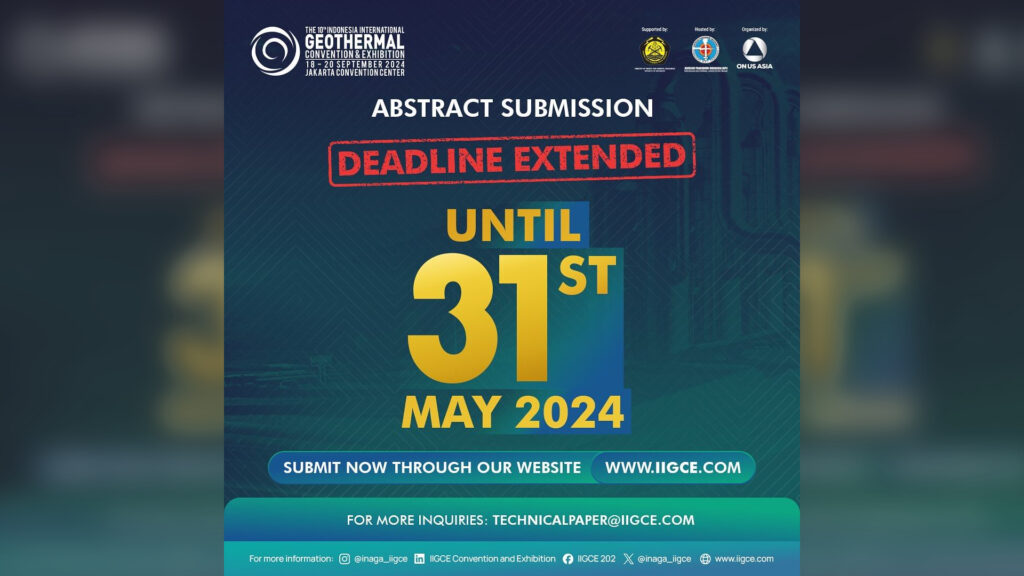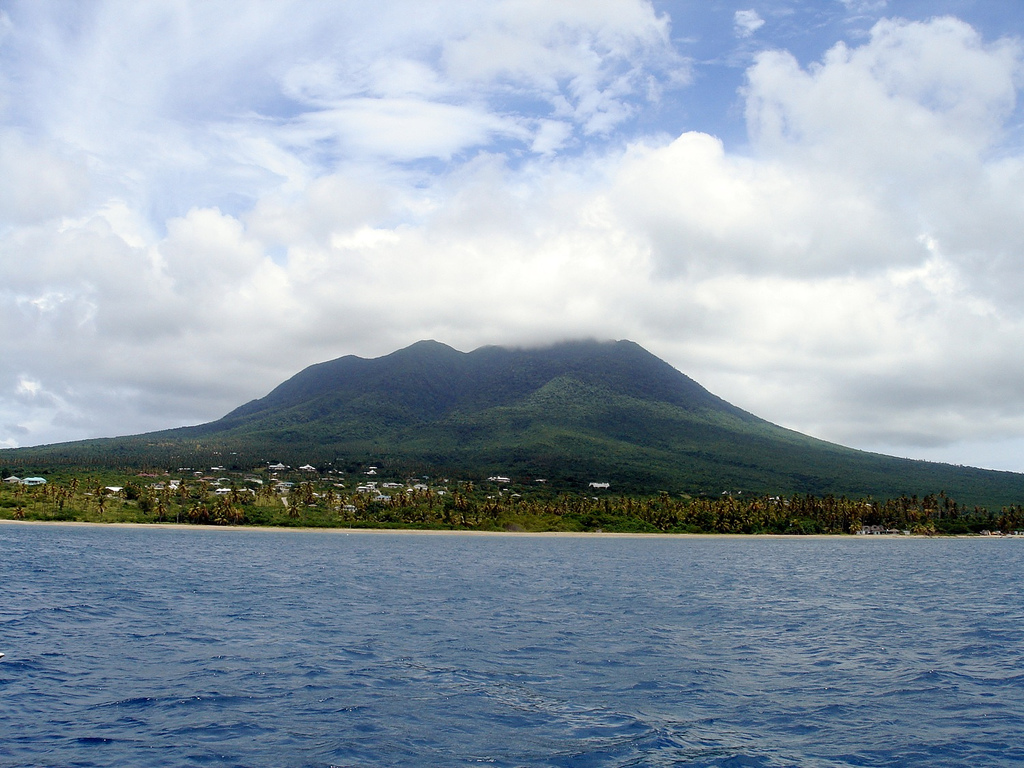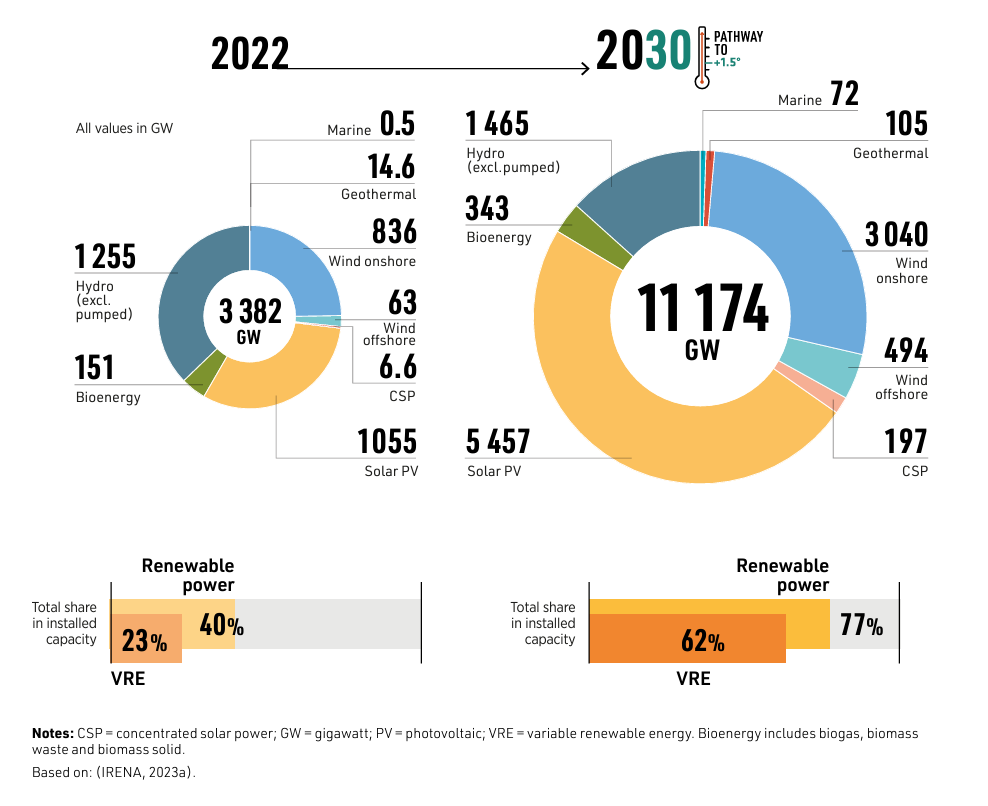Webinar – FlexGeo, a game-changer for future geothermal systems, 12 July 2024
Energy Disrupter
Join us for a webinar on the 12th of July on the FlexGeo research project which aims to develop a reversible ORC / high-temperature heat pump technology.
As part of the regular Focus on Geothermal Webinar series – a partnership of Enerchange and ThinkGeoEnergy – we are proud to host Christopher Schifflechner of Technische Universität München (TUM) for a webinar on “Reversibility: a game changer for future geothermal systems & insights into the European FlexGeo project.”
In this webinar, Christopher will discuss the FlexGeo project, a European research project that aims to maximize performance and flexibility of geothermal systems thru reversible ORC/HTHP technology. A major focus of the project will lie on the worldwide first demonstration of a reversible 200 kWel modular Organic Rankine Cycle (ORC) / high-temperature heat pump (HTHP) system on a TRL 7 level. In addition, advanced control strategies for district heating and cooling networks (DHCN) are developed and demonstrated.
Date: 12 July 2024
Time: 14:00 CEST
Registration: Click here to register
Speaker: Christopher Schifflechner, TUM
Christopher Schifflechner is the current Chair for Energy Systems at the Technical University of Munich in Germany. He leads a research group of PhD students in the fields of geothermal energy, thermodynamic cycles, and heat transfer while managing several national and international research projects.
Christopher is also the project coordinator for the FlexGeo research project under the EU’s Horizon 2020 research and innovation programme. The FlexGeo approach relies on the innovative combination of modular reversible ORC units with underground thermal energy storage (UTES) systems and advanced smart control. The reversibility allows the ORC unit to act as both electricity producer and consumer, depending on the actual needs of the energy system. This effectively means that the ORC unit can provide twice its installed capacity for secondary control reserve.

